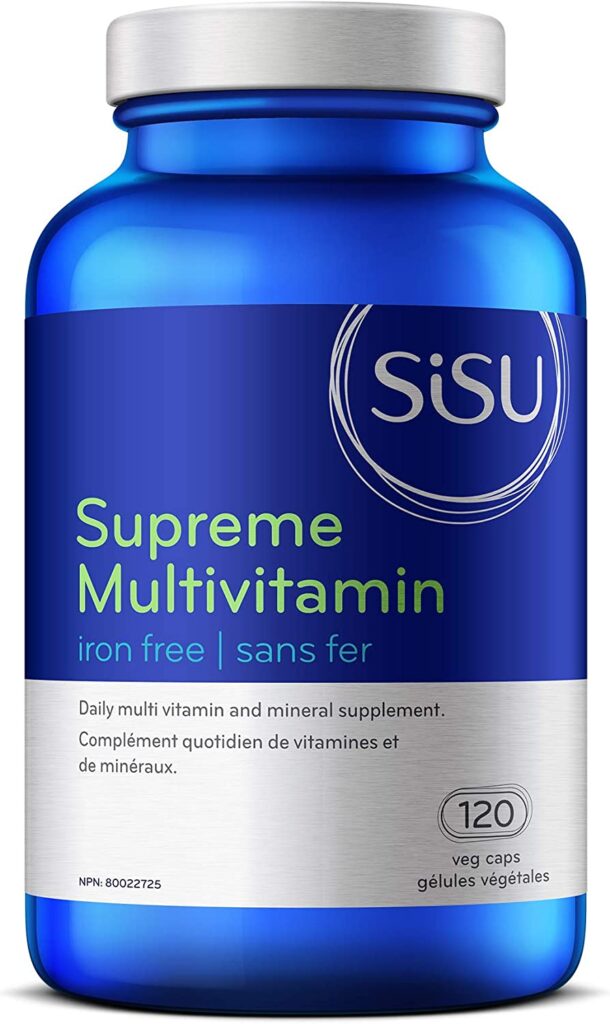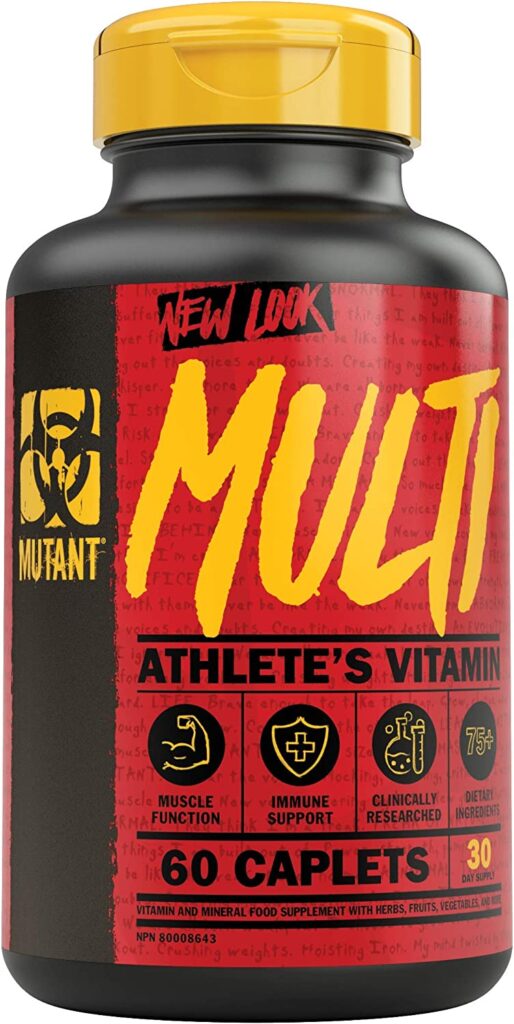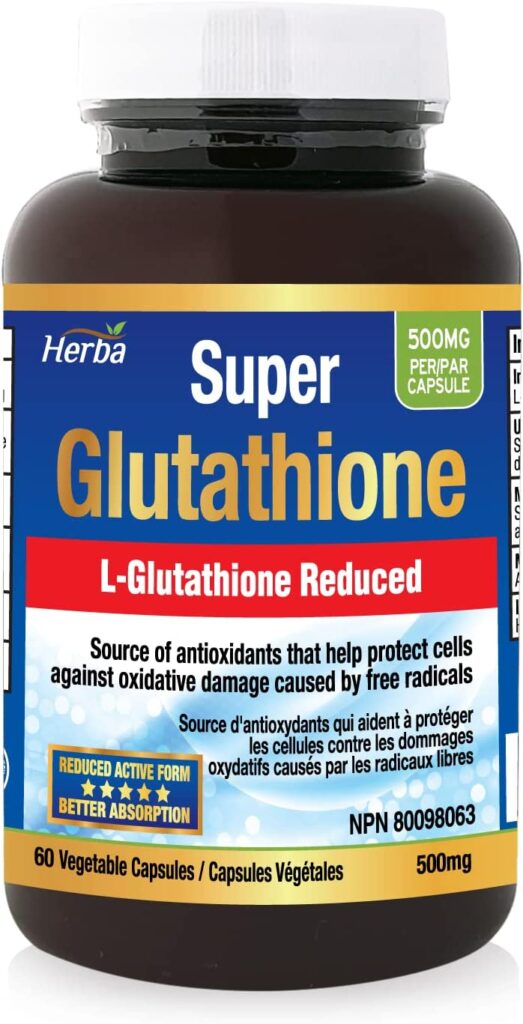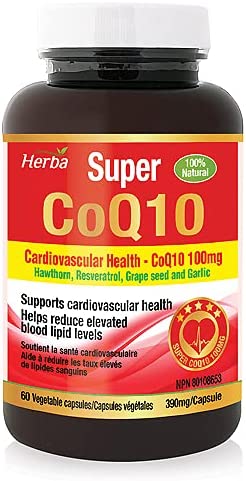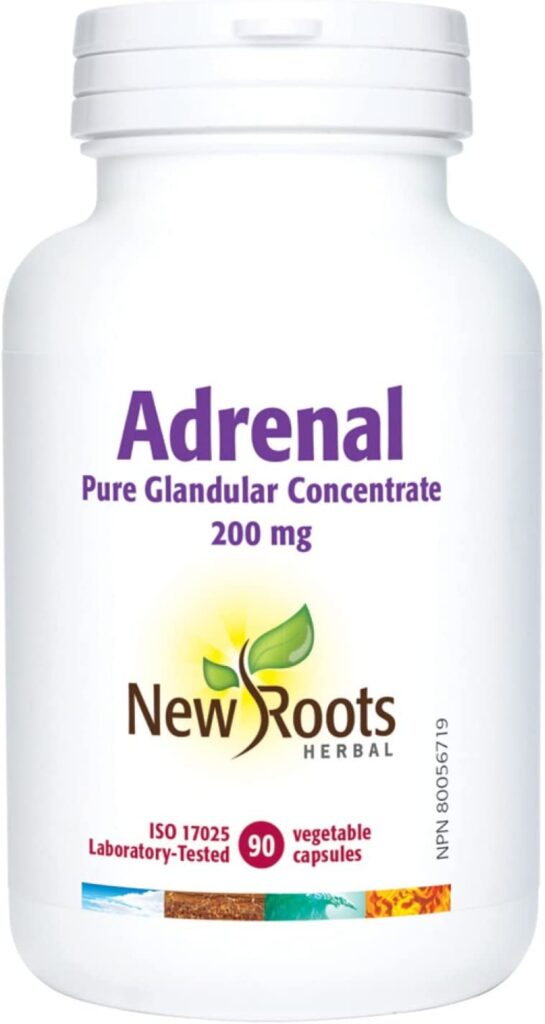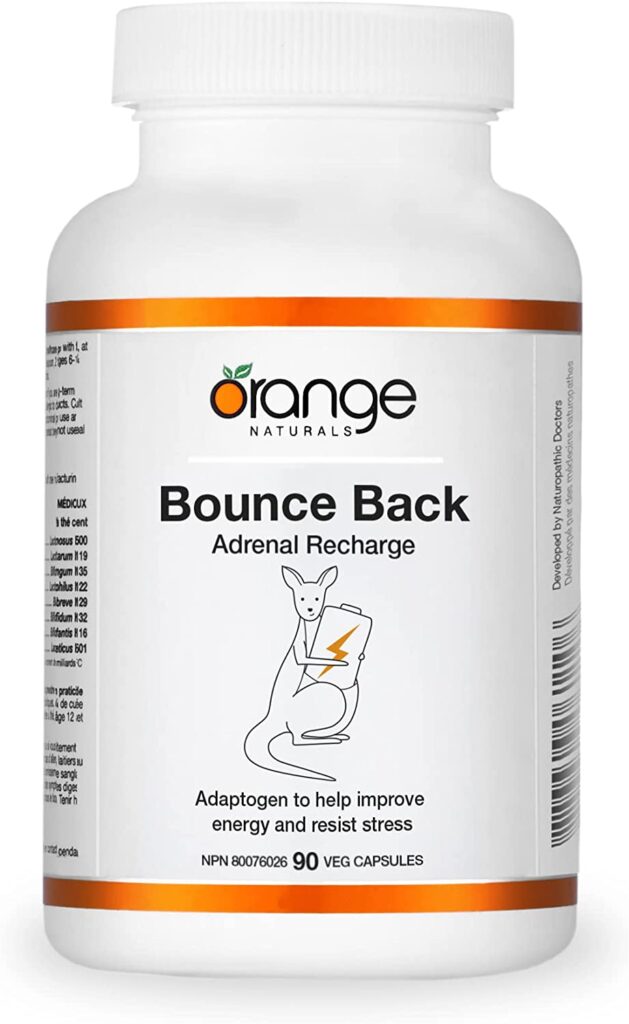Fighting Chronic Fatigue – 5 Best Supplements For Fatigue and Energy In 2023
Understand how to counter tiredness with supplements for fatigue and energy
Fatigue Today
Fatigue can be an unwelcome companion that drains our energy, hampers productivity, and dampens our zest for life. Whether it’s caused by hectic lifestyles, underlying health conditions, or other factors, the quest for renewed vitality often leads many to explore the potential benefits of supplements for fatigue and energy. As the demand for natural solutions to combat fatigue continues to rise, understanding the role that supplements can play in replenishing energy levels becomes increasingly important. In this article, we delve into the realm of supplements for fatigue and energy, exploring their potential to provide much-needed support for those seeking relief from fatigue. Join us on a journey to discover the key players in the world of supplements and their impact on combating fatigue, allowing you to reclaim your vitality and embrace life’s boundless opportunities.
Understanding Supplements
In the pursuit of sustained energy and optimal well-being, it’s crucial to recognize that supplements for fatigue and energy are not intended to replace a healthy diet, regular exercise, quality sleep, or other elements of a well-rounded lifestyle. Rather, they are meant to supplement and enhance these foundational pillars of wellness. Imagine a symphony where each instrument plays a vital role in creating a harmonious masterpiece. Similarly, achieving optimal energy levels and combating fatigue requires the integration of multiple factors working in concert.
A balanced and nutrient-rich diet serves as the cornerstone of vitality, providing essential vitamins, minerals, and macronutrients that fuel our bodies. Supplements for fatigue and energy, when used wisely, can bridge the nutritional gaps that may exist despite our best efforts. For instance, if blood tests reveal specific deficiencies or if certain nutrients are harder to obtain from food alone, targeted supplementation can be a valuable ally in restoring balance.
Physical activity and exercise not only invigorate our bodies but also improve energy levels and overall well-being. Regular movement enhances circulation, releases endorphins, and supports the body’s natural energy-producing processes. Supplements can complement exercise by providing nutrients that aid in muscle recovery, reduce inflammation, and support energy metabolism.
Quality sleep is a rejuvenating force that allows our bodies and minds to recharge. Adequate rest contributes to optimal cognitive function, mood stability, and sustained energy levels. While supplements cannot replace the importance of good sleep hygiene and healthy sleep habits, they can provide support by promoting relaxation, reducing anxiety, or addressing specific sleep-related concerns.
Moreover, it’s crucial to remember that a healthy lifestyle encompasses more than just diet, exercise, and sleep. Stress management, mental well-being, and overall self-care practices are integral to combating fatigue. Supplements, when integrated into a holistic approach, can play a complementary role in supporting stress resilience, mental clarity, and emotional balance.
By combining the power of a nutrient-rich diet, regular exercise, quality sleep, stress management, and strategic supplementation, we unlock the potential for vibrant energy and vitality. Supplements are like puzzle pieces that, when combined with a healthy lifestyle, create a complete picture of well-being. Harnessing the synergy of these elements allows us to tap into our fullest potential, experience sustained energy levels, and embrace life with renewed vigor.
Why Supplements Can Counter Fatigue?
Supplements for fatigue and energy may be useful for addressing fatigue associated with certain factors, particularly when there is a confirmed deficiency or a specific nutritional need. Here are the factors for which supplements may be beneficial:
- Nutritional deficiencies: Fatigue can be caused by deficiencies in specific nutrients such as iron, vitamin B12, vitamin D, magnesium, or other vitamins and minerals. In such cases, targeted supplements can help address the deficiency and improve energy levels.
- Anemia: Iron-deficiency anemia is a common cause of fatigue. Iron supplements, when prescribed by a healthcare professional, can help increase iron levels and alleviate fatigue associated with anemia.
- Vitamin deficiencies: Inadequate intake or absorption of essential vitamins like vitamin B12 or vitamin D can contribute to fatigue. Supplements can be beneficial in restoring optimal vitamin levels and improving energy.
- Chronic stress and adrenal fatigue: Prolonged stress can impact adrenal gland function and contribute to fatigue. Certain supplements like adaptogens (e.g., ashwagandha, rhodiola rosea) or vitamins (e.g., vitamin C, B-complex vitamins) may help support adrenal health and improve energy resilience.
- Exercise recovery: Intense physical activity or exercise can cause fatigue and muscle fatigue. Supplements like branched-chain amino acids (BCAAs) or protein powders can aid in muscle recovery, reduce exercise-induced fatigue, and support energy levels.
- Age-related energy decline: With aging, there can be a natural decline in energy levels. Certain supplements, like Coenzyme Q10 (CoQ10) or acetyl-L-carnitine, are known for their potential to support energy production and mitochondrial function, which may help counter age-related fatigue.
- Sleep disturbances: Poor sleep quality or insomnia can lead to fatigue. Certain supplements like melatonin or magnesium may support better sleep and alleviate fatigue associated with sleep disturbances.
- It’s important to note that while supplements can be beneficial in addressing certain causes of fatigue, they should be used under the guidance of a healthcare professional. They are not meant to replace a healthy lifestyle or address underlying medical conditions. A comprehensive approach that includes proper nutrition, regular exercise, adequate sleep, stress management, and consultation with a healthcare professional is crucial in addressing fatigue effectively.
It’s crucial to note that supplements should not be seen as a replacement for a balanced diet and a healthy lifestyle. They should be used under the guidance of a healthcare professional to address specific deficiencies or nutritional needs identified through proper diagnosis and testing
Best Supplements for fatigue and energy
High Potency Multiple Vitamin and Mineral
High potency multiple vitamin and mineral supplements are designed to provide a comprehensive array of essential vitamins and minerals in higher amounts compared to standard multivitamins. These supplements aim to bridge nutritional gaps and support overall health and well-being, which can have implications for energy levels and fatigue. Here’s what the evidence suggests about their role in energy support:
- Meeting nutrient requirements: High potency multivitamin and mineral supplements can help individuals meet their recommended daily intakes of essential nutrients, which are vital for energy production and metabolism. Adequate intake of vitamins and minerals, such as B-vitamins, vitamin C, iron, and magnesium, is necessary for the body’s energy production processes.
- Addressing nutrient deficiencies: Fatigue can sometimes be attributed to specific nutrient deficiencies. High potency supplements can help address these deficiencies and alleviate associated fatigue. For example, iron deficiency anemia can cause fatigue, and supplements containing iron can help restore iron levels and improve energy levels.
- Enhancing energy metabolism: Certain vitamins and minerals play key roles in energy metabolism. B-vitamins, such as B12 and B6, are involved in the conversion of food into energy. Magnesium and coenzyme Q10 are also necessary for energy production within cells. High potency supplements can provide optimal amounts of these nutrients, supporting energy metabolism and potentially reducing fatigue.
- Supporting overall health and vitality: High potency multivitamin and mineral supplements aim to promote overall health and well-being. By filling nutritional gaps and supporting various bodily functions, these supplements may contribute to improved energy levels and reduced fatigue. When the body receives adequate levels of essential nutrients, it can function optimally, leading to increased vitality and reduced feelings of fatigue.
It’s important to note that high potency multiple vitamin and mineral supplements should not be relied upon as a standalone solution for addressing energy issues or fatigue. They are meant to supplement a healthy diet, regular exercise, and overall healthy lifestyle practices. Additionally, individual nutrient needs and potential underlying causes of fatigue should be assessed by a healthcare professional.
Nutrients Enhancing Glutathione
Nutrients that enhance glutathione levels are believed to play a role in supporting overall health, including energy levels and fatigue management. Glutathione is a powerful antioxidant that helps protect cells from oxidative stress and plays a vital role in detoxification processes. Here’s what the evidence suggests about how nutrients can enhance glutathione and potentially impact energy and fatigue:
- Cysteine and Methionine: Glutathione synthesis requires an adequate supply of the amino acids cysteine and methionine. These amino acids are found in protein-rich foods such as meat, poultry, fish, eggs, and legumes. Consuming foods rich in cysteine and methionine or supplementing with N-acetylcysteine (NAC), a precursor to glutathione, can help enhance glutathione levels. Increased glutathione levels may support energy metabolism and reduce fatigue by reducing oxidative stress and promoting cellular health.
- Selenium: Selenium is an essential mineral that plays a role in glutathione metabolism. It is a cofactor for glutathione peroxidase, an enzyme involved in neutralizing harmful free radicals. Adequate selenium intake through dietary sources like Brazil nuts, seafood, and poultry can help support glutathione activity, which in turn may contribute to reduced oxidative stress, improved energy levels, and decreased fatigue.
- Vitamin C: Vitamin C is a potent antioxidant that can regenerate and recycle glutathione, enhancing its antioxidant capacity. Adequate intake of vitamin C through fruits and vegetables or vitamin C supplements may help maintain optimal glutathione levels. By reducing oxidative stress, vitamin C can support energy production processes and potentially alleviate fatigue.
- Alpha-Lipoic Acid: Alpha-lipoic acid (ALA) is an antioxidant that can help regenerate and recycle glutathione. ALA is both water- and fat-soluble, making it capable of neutralizing free radicals in various cellular environments. By supporting glutathione activity, ALA may help reduce oxidative stress, support cellular energy production, and potentially alleviate fatigue.
- B Vitamins: B vitamins, such as B2 (riboflavin), B6 (pyridoxine), and B9 (folate), are involved in glutathione metabolism. They play a role in the activation of enzymes required for glutathione synthesis and regeneration. Adequate intake of these B vitamins through a balanced diet or supplementation may support glutathione levels and contribute to improved energy metabolism and reduced fatigue.
It’s important to note that while enhancing glutathione levels with these nutrients may have potential benefits for energy and fatigue, the evidence is limited and more research is needed to establish their effectiveness conclusively. Furthermore, individual nutrient needs and underlying causes of fatigue should be evaluated by a healthcare professional.
Fat Metabolizing Supplements
The effectiveness of fat metabolizing supplements can vary, and the scientific evidence supporting their claims is often limited or mixed. While some studies suggest potential benefits of certain ingredients found in these supplements, it’s important to note that more research is needed to establish their efficacy conclusively. Here are some key points regarding the evidence for fat metabolizing supplements:
- Caffeine: Caffeine has been shown to have a modest effect on increasing energy expenditure and fat oxidation in short-term studies. It may also enhance exercise performance and reduce perceived exertion. However, its long-term effects on weight loss are less clear, and individual responses to caffeine can vary.
- Green tea extract: Green tea extract, particularly its catechins and caffeine content, has shown some potential in promoting fat oxidation and modestly affecting body weight and body composition in some studies. However, the effects may be small, and more research is needed to determine the optimal dosage and long-term efficacy.
- Garcinia cambogia: The evidence for the weight loss effects of garcinia cambogia is limited and conflicting. Some studies have shown minimal or no significant effects on body weight or fat loss. More rigorous and well-controlled trials are needed to establish its efficacy.
- Conjugated linoleic acid (CLA): CLA has shown mixed results in studies investigating its effects on body composition and weight loss. While some studies suggest modest improvements in body fat reduction, other studies have not found significant effects. Further research is needed to determine its effectiveness and optimal dosage.
- L-carnitine: The evidence for the efficacy of L-carnitine supplements in promoting fat loss is limited and inconsistent. Some studies have shown potential benefits, while others have not found significant effects on body weight or composition. Additionally, the effects may be more pronounced in individuals with carnitine deficiency.
It’s important to approach the claims made by fat metabolizing supplements with skepticism and rely on scientific evidence. While some ingredients may have potential benefits, the overall effectiveness and long-term effects of fat metabolizing supplements on weight loss and fat metabolism remain unclear. It is recommended to focus on a balanced diet, regular exercise, and overall healthy lifestyle practices as the foundation for weight management and fat loss, and consult with a healthcare professional before considering the use of any dietary supplements
Body Burn

Burn-XT

Coenzyme Q10 and Hawthorn Supplement
Certainly! Here’s a revised version that includes information on Coenzyme Q10 and Hawthorn supplements, their potential benefits, and their impact on energy and fatigue:
- Coenzyme Q10 (CoQ10): Coenzyme Q10 is a compound naturally produced by the body that plays a crucial role in energy production within cells. It is also a powerful antioxidant. As we age, our CoQ10 levels may decline, potentially impacting energy levels and overall well-being. Supplementing with CoQ10 may offer the following benefits:
- Energy production: CoQ10 is involved in the production of adenosine triphosphate (ATP), which is the primary source of energy for cellular processes. By supporting ATP synthesis, CoQ10 may enhance energy production, potentially reducing fatigue and promoting overall vitality.
- Antioxidant activity: CoQ10 acts as an antioxidant, helping to neutralize free radicals and reduce oxidative stress in the body. By protecting cells from oxidative damage, CoQ10 may support overall cellular health and contribute to improved energy levels.
- Cardiovascular health: CoQ10 is particularly beneficial for heart health. It helps support the normal functioning of cardiac cells and supports the production of ATP needed for optimal heart function. By maintaining heart health, CoQ10 may indirectly contribute to improved energy levels and reduced fatigue.
- Hawthorn Supplement: Hawthorn is a plant known for its traditional use in supporting cardiovascular health. Hawthorn supplements are derived from the berries, leaves, and flowers of the plant. While the evidence for its benefits on energy and fatigue is limited, hawthorn may offer the following potential advantages:
- Cardiovascular support: Hawthorn has been traditionally used to support heart health. It may help improve blood flow, support healthy blood pressure levels, and promote overall cardiovascular well-being. By enhancing heart health, hawthorn may indirectly contribute to improved energy levels and reduced fatigue.
- Antioxidant and anti-inflammatory properties: Hawthorn contains flavonoids and other compounds that exhibit antioxidant and anti-inflammatory effects. These properties may help protect cells from oxidative damage and reduce inflammation, potentially contributing to improved overall health and well-being.
- Stress management: Hawthorn is believed to have mild calming and stress-reducing effects. By helping to manage stress levels, hawthorn may indirectly support energy levels and reduce fatigue associated with stress.
It’s important to note that individual responses to CoQ10 and hawthorn supplements may vary, and their effectiveness in improving energy levels and reducing fatigue may depend on factors such as dosage, quality of the supplement, and individual health conditions.
CoQ10
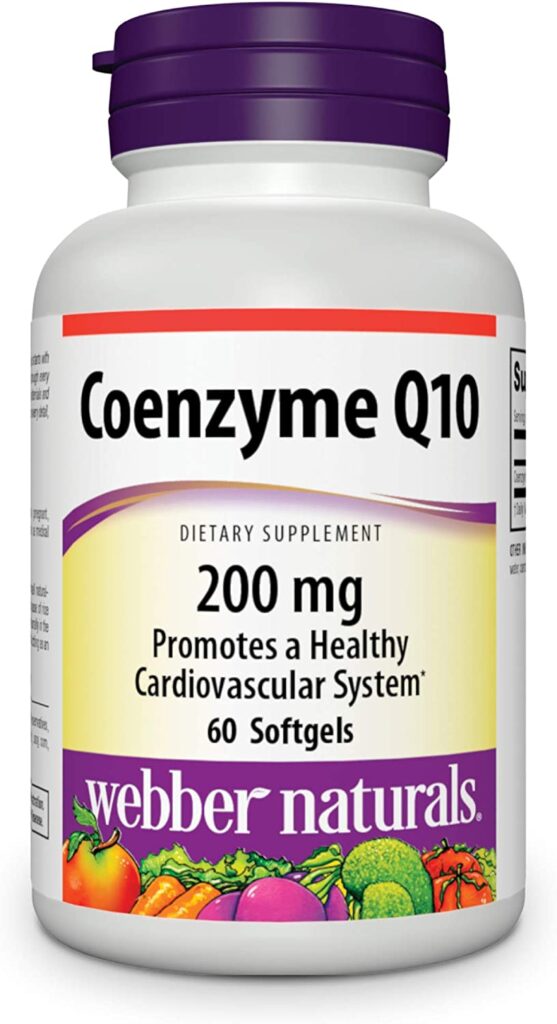
Adrenal Support Nutrient
Adrenal support nutrients are often used to promote the health and function of the adrenal glands, which play a crucial role in regulating stress responses and energy levels. While the term “adrenal support” is not specific to any one nutrient, several vitamins, minerals, and herbal supplements are commonly associated with supporting adrenal function. Here’s what the evidence suggests about their potential benefits for energy and fatigue:
- Vitamin B5 (Pantothenic Acid): Vitamin B5 is involved in the production of adrenal hormones, including cortisol, which helps regulate the body’s stress response. Adequate intake of vitamin B5 through diet or supplementation may support optimal adrenal function, potentially improving energy levels and reducing fatigue.
- Vitamin C: Adrenal glands contain high concentrations of vitamin C, which is essential for the synthesis of adrenal hormones. Vitamin C also acts as an antioxidant, protecting the adrenal glands from oxidative stress. Adequate vitamin C intake may support healthy adrenal function and contribute to improved energy levels.
- Magnesium: Magnesium is an important mineral involved in numerous biochemical reactions in the body, including energy metabolism and stress response regulation. Adequate magnesium levels are necessary for proper adrenal function and energy production. Supplementing with magnesium may help support adrenal health and reduce fatigue.
- Adaptogenic herbs: Adaptogens are a group of herbs that help the body adapt to stress and promote overall well-being. Some popular adaptogens used for adrenal support include ashwagandha, rhodiola rosea, and licorice root. These herbs are believed to help balance stress hormones, support adrenal function, and improve energy levels. While the evidence is limited, some studies suggest that adaptogens may have potential benefits for energy and fatigue.
- Omega-3 fatty acids: Omega-3 fatty acids, particularly EPA and DHA found in fish oil, have anti-inflammatory properties and may help modulate the stress response. Adequate intake of omega-3 fatty acids may support adrenal health, reduce inflammation, and promote overall well-being, potentially leading to improved energy levels.
It’s important to note that the effectiveness of adrenal support nutrients may vary depending on individual factors and underlying causes of fatigue. Additionally, addressing stress management, maintaining a healthy lifestyle, and getting sufficient restful sleep are crucial for supporting adrenal health and managing fatigue.
As with any supplement, it’s recommended to consult with a healthcare professional before starting any new regimen, especially if you have underlying health conditions or are taking medications. They can provide personalized advice and guidance tailored to your specific needs
Summary
In conclusion, when it comes to combating fatigue and improving energy levels, several supplements have shown potential benefits. The five supplements discussed in this article – fat metabolizing supplements, high potency multiple vitamin and mineral, nutrients enhancing glutathione, Coenzyme Q10, and adrenal support nutrients – offer unique mechanisms to support energy production, reduce fatigue, and promote overall well-being.
However, it is important to approach supplements with caution and consider individual needs, quality and safety, potential interactions, dosage and formulation, and the importance of an overall healthy lifestyle. Remember, supplements should not be seen as a replacement for a balanced diet, exercise, adequate sleep, and stress management. Instead, they should complement these lifestyle factors to maximize their potential benefits.
It is recommended to consult with a healthcare professional before starting any new supplement regimen, especially if you have underlying health conditions, are taking medications, or are pregnant or breastfeeding. A healthcare professional can provide personalized guidance, evaluate potential interactions, and ensure the supplements align with your specific needs and goals.
Remember, achieving optimal energy levels and managing fatigue is a holistic endeavour. By combining a balanced approach to nutrition, regular physical activity, sufficient rest, stress reduction techniques, and the targeted use of supplements, you can enhance your overall energy levels and well-being.
Ultimately, finding the right supplement or combination of supplements for your specific needs may require some experimentation and professional guidance. By making informed decisions and prioritizing a comprehensive approach to health, you can take positive steps towards reducing fatigue and achieving sustainable energy levels for a healthier and more vibrant life.

